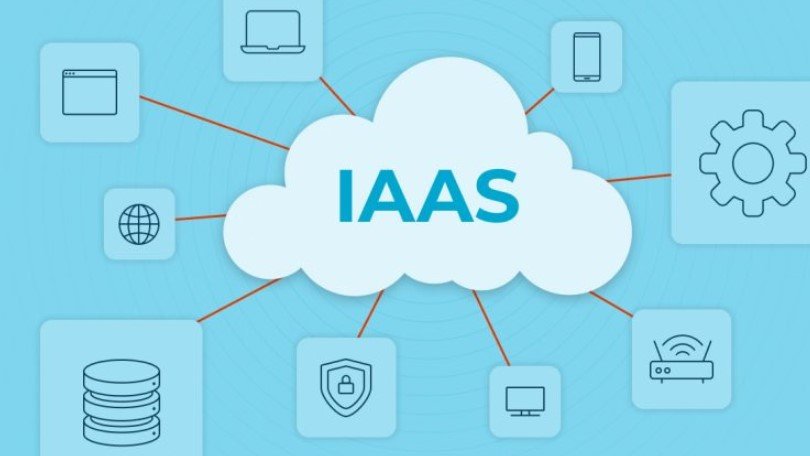As businesses increasingly navigate the complexities of modern technology, finding efficient solutions for expanding infrastructure becomes essential. Infrastructure as a Service (IaaS) is a transformative approach that allows organizations to leverage cloud computing for enhanced flexibility, scalability, and reliability. Unlike traditional methods of managing IT resources, IaaS offers a dynamic and cost-effective model tailored to meet the diverse needs of enterprises, from startups to established corporations.
Understanding IaaS: The Basics
IaaS operates on the premise of delivering computing resources over the internet. This includes vital infrastructure components such as virtual machines, storage, and networks provided by cloud service providers. With IaaS, companies can avoid the heavy costs associated with purchasing and maintaining physical hardware. Instead, they can access these resources on a pay-as-you-go basis, allowing for greater financial agility.
Key Features of IaaS
- Scalability: One of the standout features of IaaS is its inherent scalability. Organizations can quickly scale their infrastructure up or down based on current demands. This flexibility enables businesses to respond rapidly to market changes without the financial burden of over-provisioning.
- Cost Efficiency: IaaS eliminates the need for significant capital expenditures, as businesses only pay for the resources they use. This pay-as-you-go model significantly optimizes operational expenditures, allowing funds to be allocated elsewhere within the organization.
- Automation: Many IaaS providers offer tools that automate deployment, management, and scaling processes. Automation not only improves efficiency but also reduces the likelihood of human error, fostering a more reliable infrastructure.
The Benefits of IaaS for Businesses
Enhanced Agility
In an environment where rapid innovation is critical, IaaS provides the agility companies need to compete effectively. By removing the constraints of physical infrastructure, organizations can quickly launch new applications and services, test ideas, and pivot strategies without the delays commonly associated with traditional IT setups.
Focus on Core Competencies
By utilizing IaaS, businesses can redirect their focus toward their core competencies rather than IT management. With the infrastructure managed by a third-party provider, internal teams can concentrate on strategic initiatives that drive growth and customer satisfaction.
Disaster Recovery and Business Continuity
A robust disaster recovery plan is paramount for any organization. IaaS offers off-site backup solutions and ensures that systems can be restored rapidly in the event of a failure. This reliability contributes to business continuity, allowing companies to maintain operations even during unexpected disruptions.
Choosing the Right IaaS Provider
When selecting an IaaS provider, organizations should consider several factors to ensure alignment with their needs:
Performance and Reliability
An IaaS provider should demonstrate a commitment to performance with strong uptime guarantees. Assessing the reliability of underlying networks and data centers is essential to ensure that business operations are uninterrupted.
Security Measures
Data security is a paramount concern for organizations considering IaaS. Providers must offer robust security measures, including data encryption, access controls, and regular security audits to protect sensitive information.
Support and Management
A good IaaS partner should provide exceptional customer support and management tools. This includes responsive service teams, comprehensive documentation, and user-friendly dashboards to monitor and manage resources effectively.
Case Studies: IaaS in Action
E-commerce Growth
An e-commerce company faced challenges scaling its infrastructure during peak shopping seasons. By migrating to an IaaS platform, they achieved seamless scalability that allowed them to handle significant increases in traffic without downtime. This transition not only improved customer satisfaction but also boosted overall revenue during critical sales periods.
Startups and Rapid Development
A tech startup, looking to develop its applications quickly, adopted IaaS to minimize infrastructure costs while maximizing development speed. The company leveraged cloud resources to launch a series of features within months, vastly improving its competitive edge and accelerating time-to-market.
Challenges and Considerations
While IaaS offers tremendous benefits, businesses should also be aware of certain challenges. Transitioning to IaaS may require a cultural shift within the organization, as teams adapt to cloud-based resource management. Additionally, organizations must carefully plan their migration strategies and ensure they have the necessary skills to manage IaaS environments effectively.
The Future of IaaS
As technology continues to evolve, the IaaS landscape is expected to change significantly. The integration of artificial intelligence and machine learning in IaaS offerings will likely enhance automation, providing organizations with smarter systems that can foresee and respond to their needs autonomously. Furthermore, as businesses become more conscious of environmental impacts, green IaaS solutions that focus on sustainability will gain traction.
Conclusion
Expanding infrastructure with IaaS allows businesses to navigate the complexities of modern demands with ease and efficiency. By tapping into flexible, scalable, and cost-effective cloud resources, organizations can focus on innovation and growth, positioning themselves as leaders in their respective industries. As the market continues to evolve, embracing IaaS will be crucial for businesses aiming to thrive in an increasingly competitive landscape. So, businesses should consider adopting IaaS as a strategic move to stay ahead of the curve and drive success. While there may be challenges in transitioning to IaaS, the benefits far outweigh any potential difficulties, making it a valuable investment for organizations of all sizes. With its ability to enhance agility, reduce costs, improve security and support disaster recovery, IaaS is undoubtedly an essential tool for modern businesses. As technology continues to advance and new possibilities emerge, we can expect IaaS to play an even more significant role in shaping the future of business operations.

